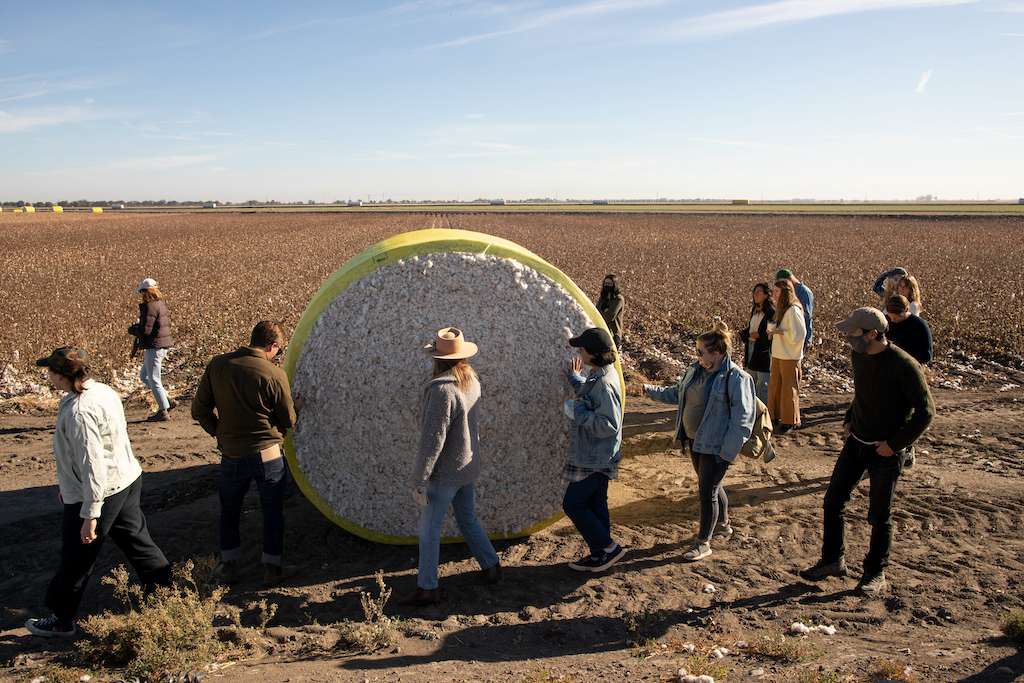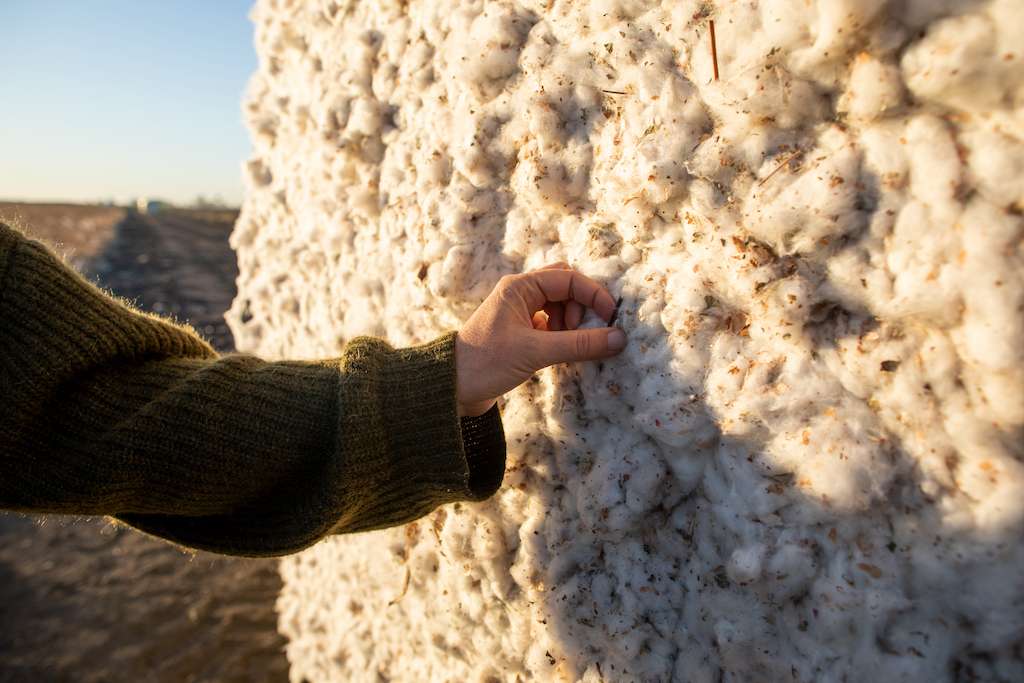For more than thirty years, Coyuchi has been focused on bringing sustainability into the home. The label’s CEO and President Eileen Mockus says that’s a job that’s never quite finished — and that’s a good thing.
“I had this epiphany,” Eileen Mockus, CEO and President of the sustainable home goods label Coyuchi told Ethos via email. “We had to make a change in how things are made.” That aha moment came during a trip she took visiting manufacturers for Pottery Barn, her former employer.
“These are great facilities, but if they weren’t adopting the processes that reduced our environmental impact, where would be in 20 years?” Mockus says that formed her point of view that each of us has in-depth knowledge in our work, and we can use that knowledge to change things for the better.
That philosophy has been paramount to Coyuchi, her current employer, which was the first brand to bring organic bedding to market about 30 years ago. Every step of Coyuchi’s supply chain is scrutinized in order to comply with The Global Organic Textile Standard (GOTS).

“For me, that’s how textiles are made,” Mockus says. “I still ask a lot of questions at factories, and share ideas about what we’d like to see, and it’s how we have textile mills recycling water, changing to Bio-Based finishes in place of traditional chemistry, low-impact dyes and Fair Trade organic cotton.”
These days, though, that’s easier for Mockus than ever. At the helm of Coyuchi, the leading home goods brand focused on organic and sustainable cotton and linen materials, responsible production is the default.
“Our vendors are GOTS certified, GOLS certified, and a couple are also Fair Trade certified,” Mockus says. Coyuchi has been sourcing GOTS-certified cotton since 2013. “We ask for supply chain visibility back to the farm, as we work with farm groups and want our production to use their fiber.”
Coyuchi sees textiles for what they are — a mix of art and science — rather than cheap base materials. The label also taps into the deep knowledge and traditions of its manufacturers — not the other way around. Most manufacturers, particularly in the home goods and bedding spaces, want their suppliers to conform to modern practices often linked to poor quality products as well as environmental damage and human rights violations.

All of the processes — weaving, dyeing and finishing, cutting and sewing — are all labor-intensive, Mockus says. “To set up a loom, even the most sophisticated looms, the yarns have to be fed by hand through the heddles. That’s artistry, so is textile dyeing. Even the most advanced mills with a color kitchen and automatic feeding of color into the dyeing machines – they have a master dyer that checks the color and adjusts the formula or the setting on the machine, to adapt to that particular batch.”
The brand’s commitment to these master crafters is evident in the demand for its products. Coyuchi’s net sales in 2021 were more than $33.3 million amounting to 26 percent year-on-year growth. The industry average is only about five percent.
Organic bedding
We spend a third of our lives in bed and yet the majority of sheets and comforters come from conventional cotton, which uses more pesticides than any other crop. As consumers were seeking out healthier food for their bodies (the USDA-certified organic program formally launched in 2002), demand for organic products across the home also began to rise. Coyuchi set out to meet that demand and has since become synonymous with sustainable and organic bedding.
The label has products in adjacent categories across the home; Coyuchi was the first home goods company with a towel collection that is Fair Trade certified. It was also the first home goods brand to incorporate a take back and renewal program, 2nd Home, which offers secondhand Coyuchi products for a fraction of the price for new items. The label incorporates zero-waste principles into its design process and minimizes textile blends as those are harder to recycle.
The company is also part of C4, a new initiative that Mockus says allows the brand to have an impact on California cotton farms.

“No singular brand, farm, retailer, or researcher has the power or influence to mobilize the change necessary to balance our climate. Sustainability, especially in textiles where there are so many players in the supply chain, is only achievable when everyone gets a seat at the table – and that’s what makes C4 so crucial,” says Mockus “Never before have there been so many voices united toward the advancement of regeneration, and I am beyond thrilled to see how strength in numbers can benefit all of us.”
Currently, less than one percent of the world’s cotton is organic and Mockus says access to non-GMO seed “can be difficult.” She says Coyuchi is working with farmers that grow cotton for the brand by supporting them in testing and adopting new practices that are better for their health and the planet. “We provide luxury, sustainable home goods without compromise.” Mockus says that’s built into the design process of identifying sustainability initiatives along with the seasonal newness and updates.
“As a continued pioneer in the sustainable home industry, we are going to continue to develop more Climate Beneficial cotton products and are looking forward to sharing the impact along the way,” she says. “There’s much to be done to rebuild soil health through our cotton sourcing and we intend to lead the way.
And, Mockus says, the end result are products that look great in the home and social media. “And fortunately for Coyuchi, it feels great too.” Mockus is a customer herself, with the Organic Relaxed Linen on her bed now, “because it’s summer and in northern California that means one night could be windy, foggy and drizzly and the next night is warm and still,” she says. “Linen is adaptable to the variations in temperature and perfect for most seasons. I love the feel of the fabric too, it’s present and has a texture, a sensory indicator it’s time to relax.”
Related on Ethos:


